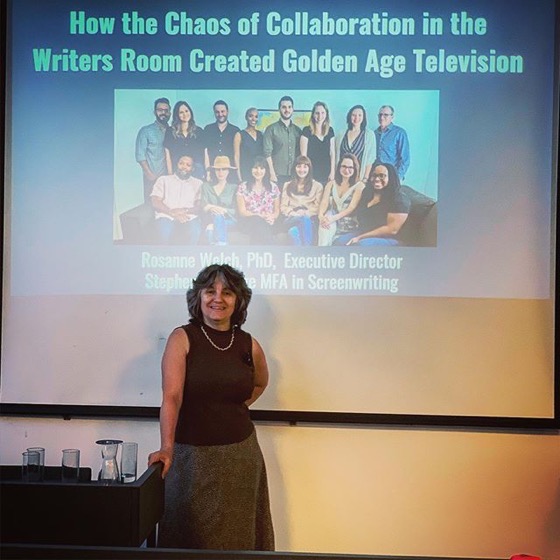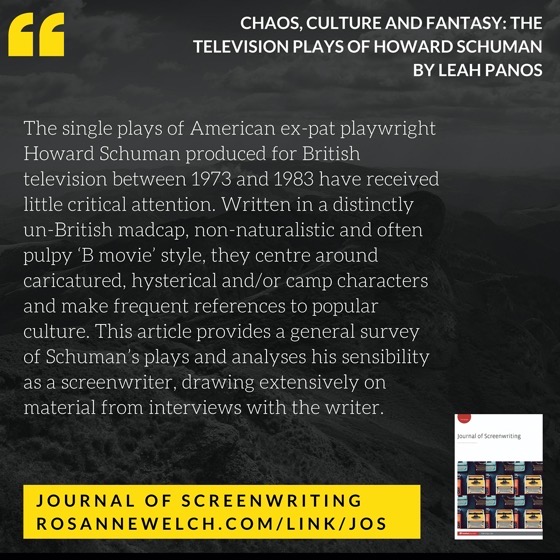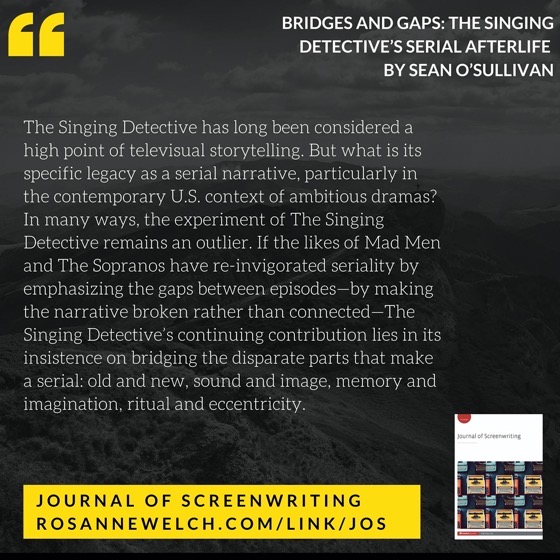Thanks to the gracious invitation from my Screenwriting Research Network colleague Paolo Russo – and a grant he was able to procure (and in the before-Covid time) I was able to spend a week at Oxford Brookes University working with the screenwriting masters students in Paolo’s course. At the culmination of the week, I gave this lecture on how writers rooms worked in the States.
Transcript:
Still, there’s something missing in writer’s rooms in America.
There’s some girls in that picture because it’s executive produced by a girl.
Missing something else. (Audience: people of color)People of color because you know they exist in the world.Isn’t that interesting but they were not yet existing on very many TV shows. Again a whole font of stories not being told — not being told correctly. On my show Touched by Angel we had we had two women of color and you have to remember that you only have experiences until you do research that come from your own life and that’s good and that’s a building block but it’s not everything right?
Watch this entire presentation
Subscribe to Rosanne’s Channel and receive notice of each new video!
* A portion of each sale from Amazon.com directly supports our blogs
** Many of these books may be available from your local library. Check it out!
† Available from the LA Public Library
Podcast: Play in new window | Download
Subscribe: RSS
![22 People of Color and Television from There And Back Again: Writing and Developing for American TV [Video]](https://rosannewelch.com/wp-content/uploads/2021/05/rmw-oxford-brookes-22.jpg)
![11 Donald Bellisario from How The Chaos Of Collaboration in the Writers Room Created Golden Age Television [Video]](https://rosannewelch.com/wp-content/uploads/2021/05/srn-porto-11.jpg)




![21 Buffy The Vampire Slayer from There And Back Again: Writing and Developing for American TV [Video]](https://rosannewelch.com/wp-content/uploads/2021/04/rmw-oxford-brookes-21.png)

![10 Steven Bochco from How The Chaos Of Collaboration in the Writers Room Created Golden Age Television [Video]](https://rosannewelch.com/wp-content/uploads/2021/04/srn-porto-10.png)




![20 More On Russell T Davies from There And Back Again: Writing and Developing for American TV [Video]](https://rosannewelch.com/wp-content/uploads/2021/04/rmw-oxford-brookes-20.jpg)


